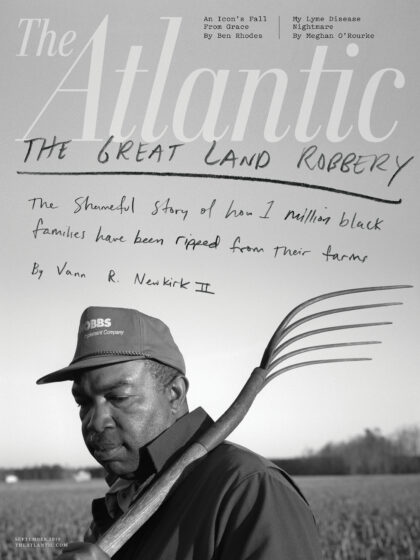Vann R. Newkirk II wrote a cover story for The Atlantic chronicling the history of the 1 million black families in the Mississippi Delta whose land was stolen.
“You ever chop before?” Willena Scott-White was testing me. I sat with her in the cab of a Chevy Silverado pickup truck, swatting at the squadrons of giant, fluttering mosquitoes that had invaded the interior the last time she opened a window. I was spending the day with her family as they worked their fields just outside Ruleville, in Mississippi’s Leflore County. With her weathered brown hands, Scott-White gave me a pork sandwich wrapped in a grease-stained paper towel. I slapped my leg. Mosquitoes can bite through denim, it turns out.
Cotton sowed with planters must be chopped—thinned and weeded manually with hoes—to produce orderly rows of fluffy bolls. The work is backbreaking, and the people who do it maintain that no other job on Earth is quite as demanding. I had labored long hours over other crops, but had to admit to Scott-White, a 60-something grandmother who’d grown up chopping, that I’d never done it.
“Then you ain’t never worked,” she replied.
The fields alongside us as we drove were monotonous. With row crops, monotony is good. But as we toured 1,000 acres of land in Leflore and Bolivar Counties, straddling Route 61, Scott-White pointed out the demarcations between plots. A trio of steel silos here. A post there. A patch of scruffy wilderness in the distance. Each landmark was a reminder of the Scott legacy that she had fought to keep—or to regain—and she noted this with pride. Each one was also a reminder of an inheritance that had once been stolen.









